By submitting this form, you agree to our privacy policy and terms of service.
Subscribe to get the latest news, industry trends, blog posts, and updates...
Struggling to choose between NetSuite vs QuickBooks for your business? Or perhaps you’re considering a QuickBooks to NetSuite migration as your company grows? Maybe you’re searching for the best way to migrate from QuickBooks to NetSuite with minimal disruption?
Ever had a small accounting error turn into a major financial disaster? A minor QuickBooks limitation that suddenly creates serious operational problems as your business grows?
Financial management breakdowns aren’t random. They happen when software limitations get ignored or critical business needs fall through the cracks of systems that can’t keep up.
And the cost? Thousands in missed opportunities, frustrated teams, and dramatic drops in business productivity. Not to mention the competitive edge you lose while struggling with inadequate tools.
The real problem? Staying with QuickBooks when your business has outgrown it.
If you’re still using QuickBooks Online or QuickBooks Enterprise when your business needs the power of Oracle NetSuite, you’re making your life harder. At Folio3, we’ve helped hundreds of businesses make the transition at exactly the right time – before small annoyances become expensive nightmares. Learn more about our NetSuite implementation services.
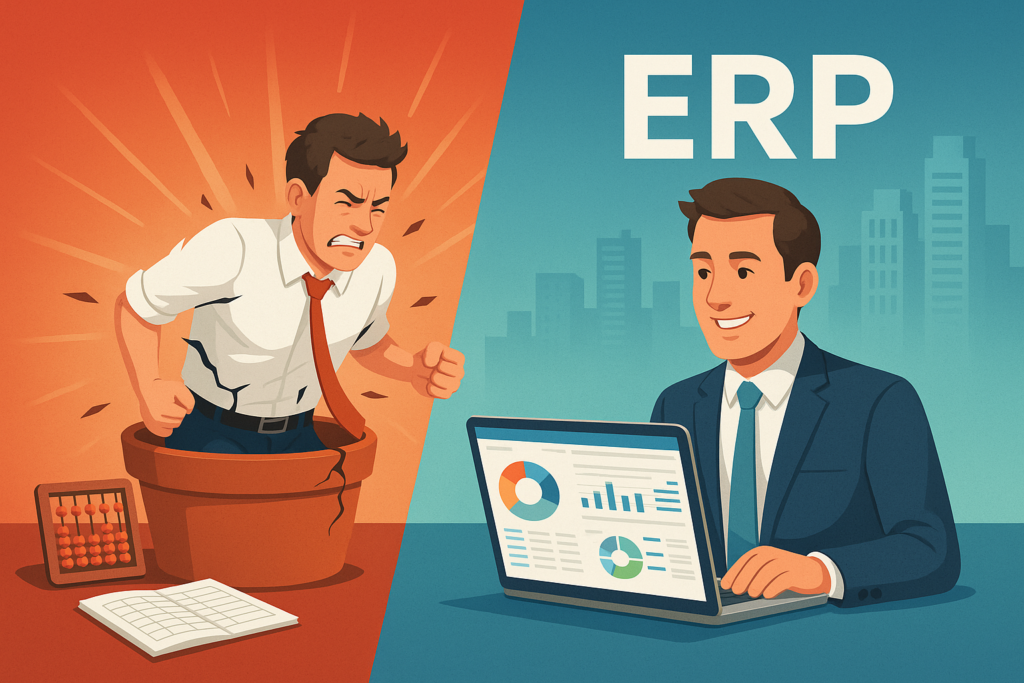
Let’s say you manage a growing business currently using QuickBooks Enterprise:
Your inventory manager reports trouble tracking stock across locations. No big deal, right? You make a note, but everyone’s busy, so it gets pushed back.
A few weeks go by. The tracking issues don’t stop. Now there’s inventory discrepancies affecting your financial reporting.
A month later. The problem seeps into your customer relationships, creating shipping delays and order errors.
Now it’s not a simple fix. You need multiple workarounds, spreadsheets outside your system, and your team is spending hours reconciling data that should be automated.
All because QuickBooks couldn’t handle multi-location inventory – something NetSuite ERP manages effortlessly. Discover how NetSuite for wholesale distribution can solve your inventory challenges.
And it doesn’t stop there:
Outgrowing QuickBooks without upgrading to NetSuite = expensive disasters.

How much more expensive is QuickBooks in the long run compared to NetSuite?
Most business owners don’t realize how much the cost of NetSuite vs QuickBooks actually favors NetSuite when you factor in hidden expenses. Here’s what staying with QuickBooks too long really costs:
| Cost Factor | Impact on Business |
|---|---|
| Manual Processes | Your finance team spends 15-20 hours weekly on tasks NetSuite automates |
| Decision Delays | Limited visibility means slower reactions to market changes |
| Growth Constraints | New opportunities require system changes that take weeks instead of days |
| Data Silos | Separate systems for inventory, CRM, and finance create reconciliation headaches |
| Compliance Risks | Manual processes increase error rates and audit concerns |
| Scaling Costs | Adding users and functionality to QuickBooks creates diminishing returns |
The longer your business outgrows QuickBooks Online or Enterprise, the more expensive the problems get. But there’s a solution – and at Folio3, we specialize in making the QuickBooks to NetSuite migration smooth and successful.
Before diving into specific features of Oracle NetSuite vs QuickBooks, let’s address the most common questions businesses ask us at Folio3:
A: Warning signs include heavy reliance on spreadsheets outside the system, manual consolidation processes, inventory management challenges, transaction volume slowdowns, or when adding new business units becomes problematic.
A: With proper implementation and training from experienced partners like Folio3, your team will quickly adapt to NetSuite. Most users report that despite more capabilities, NetSuite’s interface is intuitive and actually saves time once configured properly. Our NetSuite consulting services ensure smooth user adoption.
A: With the right partner, moving from QuickBooks to NetSuite can be phased and minimally disruptive. At Folio3, we’ve developed a methodology that ensures business continuity throughout the transition.
A: For growing businesses, our clients typically see ROI within 6-12 months through improved efficiency, better decision-making, reduced manual work, and ability to scale without adding proportional headcount. The NetSuite pricing vs QuickBooks difference is quickly offset by these gains.
A: While possible, this “patchwork” approach often costs more in the long run through integration challenges, data discrepancies, and maintaining multiple systems. NetSuite ERP’s unified approach eliminates these issues.
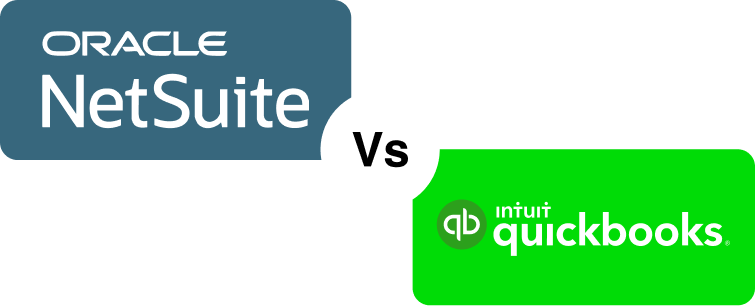
What are the main differences between NetSuite and QuickBooks? Here’s a direct comparison of the core platforms:
| Aspect | NetSuite | QuickBooks |
|---|---|---|
| Platform Type | Full Cloud ERP System | Accounting Software |
| Deployment | Cloud-only | Cloud or Desktop |
| Architecture | Built for cloud, real-time | Adapted for cloud, batch processing |
| User Limits | Unlimited | Up to 40 users for QuickBooks Enterprise |
| Multi-Entity | Yes, with consolidated reporting | Limited, separate subscriptions required |
| Global Capabilities | Multi-language, currency, tax | Basic multi-currency with some limitations |
| Industry Solutions | Pre-configured for 12+ industries | Generic, limited customization |
| Integration Approach | Unified data model, strong APIs | Robust API ecosystem with 750+ app integrations |
| Mobile Access | Comprehensive | Basic to moderate functionality |
When comparing NetSuite ERP vs QuickBooks Online, the architectural differences become immediately apparent. NetSuite was built from the ground up as a cloud-based, integrated business management system, while QuickBooks was originally designed as desktop accounting software that later adapted to cloud deployment.

Which system offers better financial management, NetSuite or QuickBooks Enterprise? Compare their capabilities:
| Feature | NetSuite | QuickBooks |
|---|---|---|
| Basic Accounting | ✓ | ✓ |
| Multi-Book Accounting | ✓ | ✗ |
| Revenue Recognition | Advanced, rule-based | Basic |
| Tax Management | Global, automated | US-focused, semi-manual |
| Fixed Assets | Complete lifecycle tracking | Purchase tracking only |
| Cash Management | Advanced forecasting | Basic tracking |
| Financial Close | Automated processes | Manual processes |
| Compliance Support | ASC 606, IFRS, SOX, etc. | Basic GAAP |
| Approval Workflows | Customizable, multi-level | Basic/none |
| Audit Trail | Comprehensive | Limited |
Learn more about NetSuite for accounting to see how it can transform your financial operations.

How does NetSuite’s inventory management compare to QuickBooks Enterprise?
When comparing Oracle NetSuite vs QuickBooks Enterprise, the inventory management capabilities show stark differences:
| Feature | NetSuite | QuickBooks Enterprise |
|---|---|---|
| Inventory Tracking | Multi-location, lot, serial | Basic quantities |
| Warehouse Management | Built-in system | Third-party only |
| Demand Planning | Advanced forecasting | ✗ |
| Manufacturing | Work orders, BOM, routing | Basic assembly |
| Procurement | Full sourcing, approval workflows | Basic purchasing |
| Shipping Integration | Multiple carriers, rules | Basic |
| Landed Cost | Automated calculations | Manual tracking |
| Drop Shipping | Automated | Manual |
| Bin Management | Multi-level | ✗ |
| Cycle Counting | Scheduled, systematic | Manual |
Does NetSuite have better CRM capabilities than QuickBooks? When evaluating NetSuite vs QuickBooks, the CRM capabilities represent one of the most significant differences:
| Feature | NetSuite | QuickBooks |
|---|---|---|
| Contact Management | Comprehensive | Basic, with CRM available via integrations (e.g., HubSpot) |
| Sales Automation | Full pipeline and forecasting | ✗ |
| Marketing Automation | Campaign management | ✗ |
| Customer Service | Case management, knowledge base | ✗ |
| Customer Portal | Self-service capabilities | ✗ |
| Email Integration | Two-way sync | Limited |
| Sales Commission | Flexible rules | Basic |
| Customer Insights | 360-degree view | Financial only |
| Opportunity Management | Complete lifecycle | ✗ |
| Quote-to-Cash | Unified process | Disconnected |

Which is better for project management, NetSuite or QuickBooks? The project management capabilities highlight another major difference in the NetSuite vs QuickBooks comparison:
| Feature | NetSuite | QuickBooks |
|---|---|---|
| Project Accounting | Comprehensive | Basic |
| Resource Allocation | Advanced scheduling | ✗ |
| Time Tracking | Multi-dimension | Basic |
| Expense Management | Workflow, policy enforcement | Basic entry |
| Billing Methods | Fixed, time, milestone, hybrid | Basic time billing |
| Project Profitability | Real-time analysis | Basic reporting |
| Project Templates | Extensive library | ✗ |
| Resource Utilization | Advanced tracking | ✗ |
| Gantt Charts | Built-in | ✗ |
| Client Portal | Real-time access | ✗ |
How does NetSuite’s reporting compare to QuickBooks? The reporting capabilities represent one of the most compelling reasons to consider moving from QuickBooks to NetSuite:
| Feature | NetSuite | QuickBooks |
|---|---|---|
| Financial Reports | Extensive, customizable | Basic, limited |
| Operational Dashboards | Role-based, real-time | Basic |
| Custom Reporting | Advanced builder | Limited |
| KPI Tracking | 75+ pre-built metrics | Limited |
| Forecasting | Statistical methods | Basic |
| Consolidation | Automated | Manual |
| Drill-Down | Transaction level | Limited |
| Business Intelligence | Built-in analytics | Third-party only |
| Saved Searches | Powerful, customizable | Limited |
| Report Scheduling | Automated distribution | Manual |
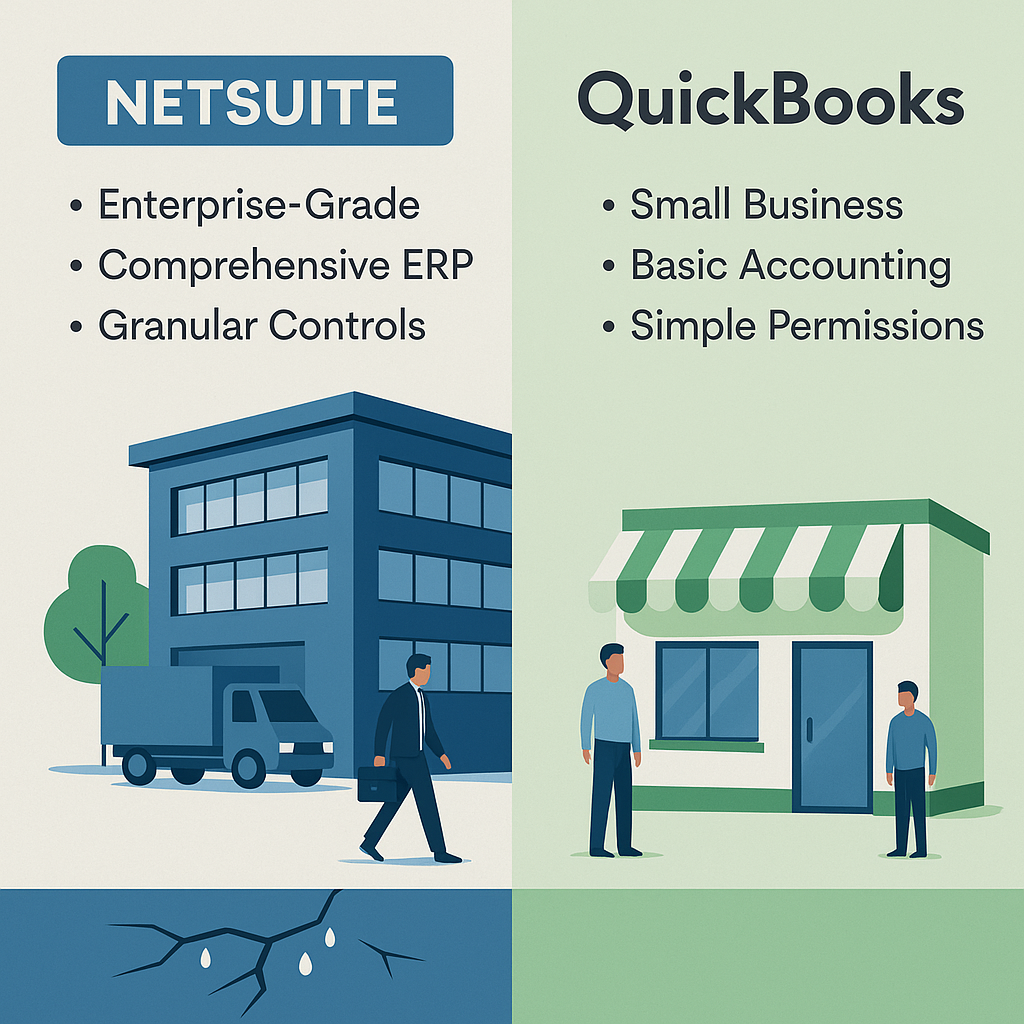
How do NetSuite and QuickBooks compare for user management and security?
NetSuite:
QuickBooks:

Which system scales better, NetSuite or QuickBooks Enterprise? When comparing NetSuite vs QuickBooks Enterprise, scalability becomes a critical differentiator:
| Factor | NetSuite | QuickBooks Enterprise |
|---|---|---|
| Transaction Volume | High capacity but with limitations | Limited to practical usage constraints |
| Data Volume | File size impacts performance, service tiers determine capacity | Recommended to keep under 1.5 GB file size |
| Entity Structure | Multiple subsidiaries | Single company (limited multi) |
| International | Global business ready | US-centric |
| Customization | Extensive without coding | Limited |
| Workflow Automation | Advanced | Basic/none |
| API Capabilities | Robust, well-documented | Limited |
| Ecosystem | 600+ SuiteApps, partners | 650+ apps, varying quality |
| Business Model Changes | Flexible adaptation | Often requires new setup |
| M&A Activity | Supports integration | Typically requires parallel systems |

How much more does NetSuite cost compared to QuickBooks? The cost of NetSuite vs QuickBooks goes beyond just subscription pricing:
| Cost Factor | NetSuite | QuickBooks |
|---|---|---|
| Base Subscription | $999-$2,999/month | $25-$150/month |
| User Licenses | $99-$199/user/month | Included in plans (limited) |
| Implementation | $40,000+ | $0-$5,000 |
| Additional Modules | $499-$1,499/month each | Add-ons vary |
| Customization | $70+/hour | Limited options |
| Training | $1,500-$5,000 | $0-$500 |
| Support | Basic included, Premium tiers available | Basic included |
| Third-Party Apps | Fewer needed | Often required |
| Upgrades | Included, automatic | May require repurchase |
While NetSuite pricing vs QuickBooks shows a higher initial investment, the total cost of ownership calculation changes dramatically when you factor in efficiency gains and eliminated manual processes.

What is the process for migrating from QuickBooks to NetSuite?
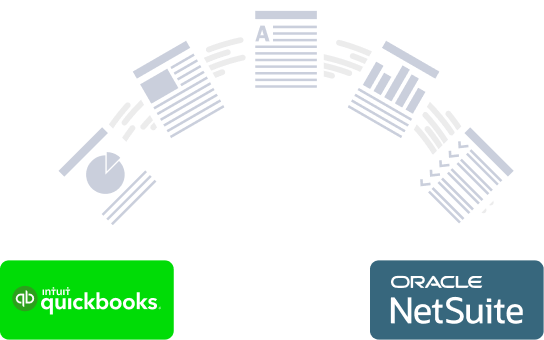
At Folio3, we’ve refined the QuickBooks to NetSuite migration process through hundreds of successful implementations. Here’s how we ensure your transition delivers maximum value with minimum disruption:
How do you migrate data from QuickBooks Desktop to NetSuite? These are the key factors for success:

How does NetSuite compare to QuickBooks for different industries?
Different industries face unique challenges when migrating from QuickBooks to NetSuite. Here’s how Folio3 addresses specific industry needs:
Why is NetSuite better than QuickBooks for manufacturing companies?
Key QuickBooks Enterprise Limitations:
NetSuite ERP Value Drivers:
Improve on-time delivery from 82% to 96% and reduce inventory carrying costs by 24% with NetSuite implementation.

Which is better for IT consulting firms, NetSuite or QuickBooks?
Key QuickBooks Limitations:
NetSuite Value Drivers:
See how Folio3 helped Cooperative Computing migrate from QuickBooks to NetSuite
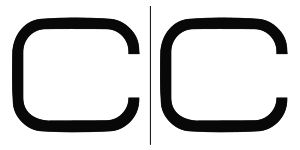
Cooperative Computing, an IT consulting firm operating across four countries since 2013, struggled with fragmented data systems, using QuickBooks alongside separate invoicing, project management, and CRM applications. This disconnected approach significantly reduced efficiency in accounting, financial reporting, and project management operations.
The company faced particular challenges such as
After implementing NetSuite with Folio3, Cooperative Computing consolidated all core functions onto a single platform. They have been able to;
NetSuite revenue management capabilities eliminated manual scheduling work previously done in spreadsheets. Most importantly, Cooperative Computing dramatically improved the reliability and accuracy of their data by eliminating error-prone manual data work – a problem that had plagued them throughout their QuickBooks years.
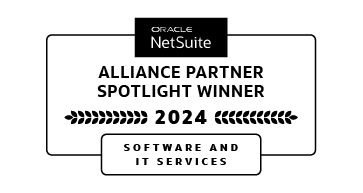
This successful implementation earned Folio3 the prestigious Summer 2024 Alliance Partner Spotlight Award from NetSuite in the Software and IT Services category for outstanding work with Cooperative Computing Group.
See how Folio3 helped Cooperative Computing migrate from QuickBooks to NetSuite.
Is NetSuite or QuickBooks better for distribution and construction companies?
Key QuickBooks Limitations:
NetSuite ERP Value Drivers:
Another successful QuickBooks to NetSuite migration: United California Glass & Door.

United California Glass & Door (UCGD), a supplier and contractor of windows, doors, skylights, frames, and entrances for commercial and residential clients since 1991, experienced steady growth that strained their QuickBooks Desktop system, especially as they expanded into security, access control, and fire protection services.
UCGD struggled with:
After implementing NetSuite with Folio3,
Folio3’s customizations eliminated problems in accounting for taxes UCGD had paid on behalf of vendors and simplified the creation of invoices and customer-facing documents.
The company’s next step is to implement NetSuite Inventory Management and integrate with Salesforce CRM to further increase efficiency and transparency across sales and finance – integrations that would have been much more challenging with their previous QuickBooks system.

This successful implementation earned Folio3 the prestigious Summer 2024 Alliance Partner Spotlight Award from NetSuite in the Building Materials category for outstanding work with United California Glass and Door.

Should my business use QuickBooks or NetSuite? The choice between QuickBooks and NetSuite ultimately comes down to your business needs and growth trajectory:
QuickBooks is the right choice when:
NetSuite is the right choice when:

How do I start the process of moving from QuickBooks to NetSuite?
Ready to explore whether moving from QuickBooks to NetSuite is right for your business? Folio3 offers a structured approach to help you decide:
There’s no obligation, and you’ll gain valuable insights regardless of your decision. Contact us today to get started.

Why choose Folio3 for QuickBooks to NetSuite migration?
When selecting a partner for your QuickBooks to NetSuite migration, experience matters. Folio3 brings unique advantages:
Client success metrics:

While NetSuite’s upfront subscription cost is higher than QuickBooks, the total cost of ownership often favors NetSuite when you factor in efficiency gains, eliminated manual processes, and the ability to scale without adding proportional headcount. Most businesses see positive ROI within 6-12 months of implementation.
The typical implementation timeframe ranges from 3-6 months depending on business complexity. With Folio3’s proven methodology, we focus on minimizing disruption and ensuring business continuity throughout the transition. Our phased approach allows critical functions to go live first, with supporting processes following in a planned sequence.
Yes, historical data can be migrated from QuickBooks to NetSuite. Folio3’s data migration experts ensure clean, accurate transfer of your critical business information. We typically recommend migrating open transactions, master records, and 1-3 years of historical transactions depending on your business needs.
With proper implementation and role-based training from Folio3, most users adapt quickly to NetSuite. Despite having more capabilities, many users report that NetSuite’s interface is intuitive and actually saves time once properly configured. Our training approach focuses on practical, job-specific skills to ensure rapid adoption.
NetSuite offers pre-configured solutions for 12+ industries, with additional customization capabilities to address unique requirements. Folio3 has deep experience implementing NetSuite across manufacturing, distribution, professional services, retail, software, and many other industries. Our team can configure the system to match your specific business processes.
The decision to migrate from QuickBooks to NetSuite represents a strategic investment in your business’s future. While QuickBooks serves small businesses with basic needs effectively, growing companies eventually reach a tipping point where the limitations become barriers to growth.
NetSuite removes these barriers with a unified, scalable platform that grows with your business. The real value isn’t just in more features – it’s in the operational efficiency, strategic visibility, and competitive advantage that comes from having your entire business running on a single, integrated system.
At Folio3, we’ve guided hundreds of businesses through this important transition. Our proven methodology, industry expertise, and commitment to client success ensure your journey from QuickBooks to NetSuite delivers maximum value with minimum disruption.
The question isn’t whether your business will outgrow QuickBooks – it’s when, and how prepared you’ll be when that time comes. By partnering with Folio3 for your NetSuite implementation, you’re not just changing software – you’re positioning your business for sustainable, efficient growth for years to come.
Get started with your NetSuite evaluation today and discover how we can help transform your business operations.
By submitting the form you agree to terms & condition and privacy policy of Folio3
© 2025, Folio3 Software Inc. All rights reserved.